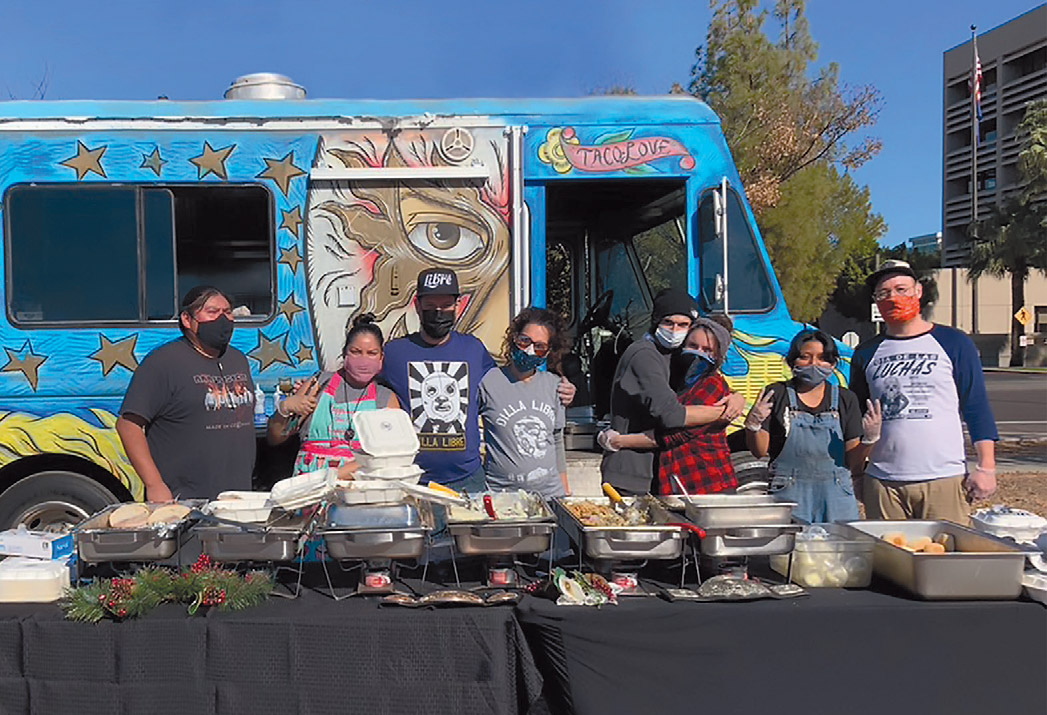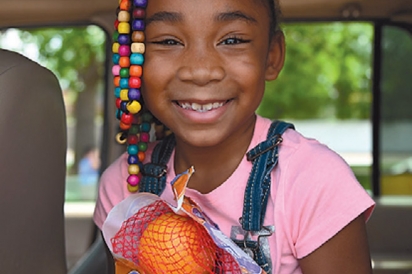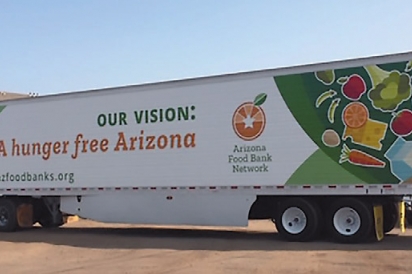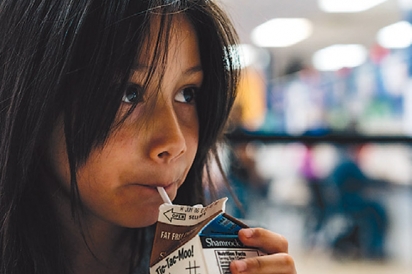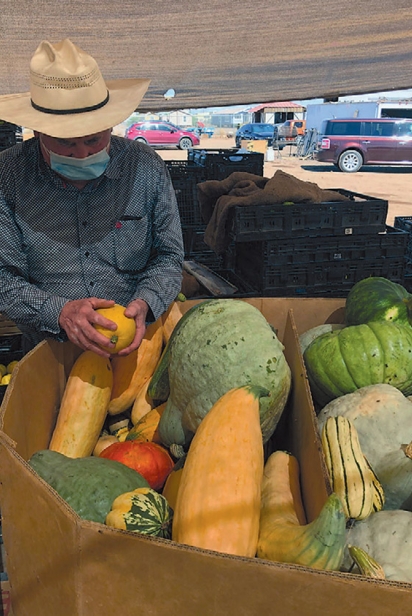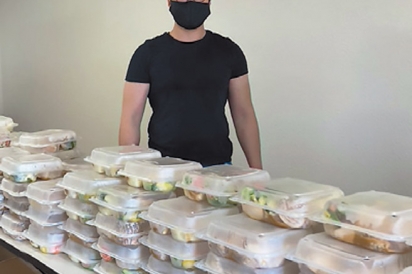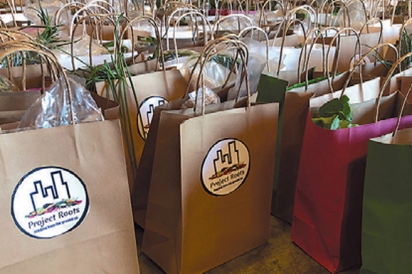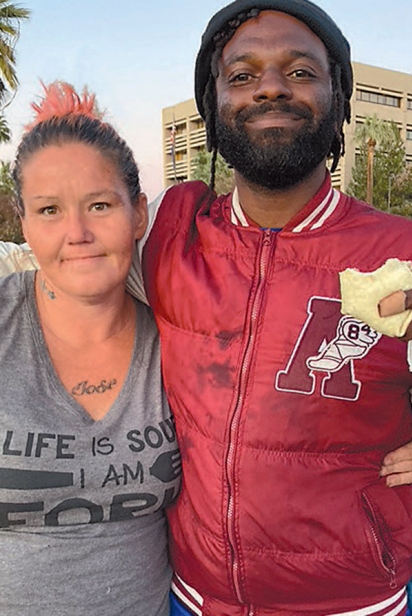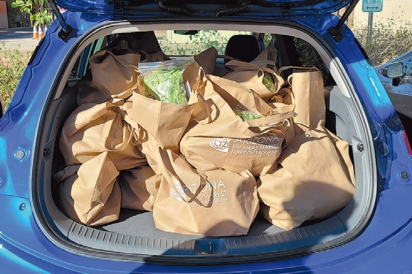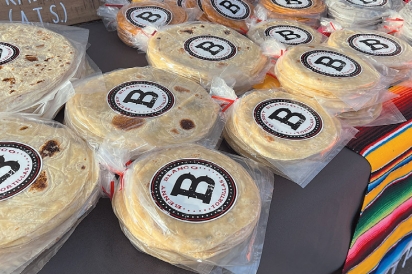Feeding People in a Pandemic
Whether it's a soft flour tortilla, a bag of fresh local produce or a chef-prepared meal, food delivers not only sustenance but hope to people in need. Hunger has long been a never-ending yet almost invisible problem in Arizona’s communities, and this past year’s pandemic has exacerbated the challenges of feeding people who might otherwise go without. But 2020 saw new collaborations arise that have the potential to solve some of the seemingly intractable problems in Arizona’s food system, both during these difficult times and going forward.
From mom-and-pop businesses like Benny Blanco Tortillas to large government- funded programs like Feed Phoenix, organizations have worked together to help restaurants and caterers survive; to provide local farms with markets for their produce, meat and dairy; and, importantly, to deliver nutritious local food to people suffering through economic upheaval.
Friends of the Farm, Arizona Food Bank Network
In 2019, one of every eight Arizonans suffered from food insecurity, but now, according to Angie Rodgers, president and CEO of the Arizona Food Bank Network, approximately one in seven Arizona residents is having difficulty putting food on the table, a number exacerbated by the pandemic. This past Thanksgiving alone, the nonprofit’s member food banks delivered 1.643 million pounds of food to their communities, an increase of more than 58% over past years.
Member food banks (St. Mary’s Food Bank Alliance, Desert Mission Food Bank and United Food Bank in the Phoenix metro area, along with Community Food Bank of Southern Arizona in Tucson and Yuma Community Food Bank) have seen a large influx of first-time clients for services. Much of that demand has been filled by dollars and surplus food from the Federal government.
In the fall of 2019, before there was any hint of what was coming in 2020, the Arizona governor’s office provided seed money to AzFBN to create a pilot program that allows the network to purchase fresh produce, dairy, eggs and meat directly from small local farms. The Friends of the Farm program quickly grew to be a valuable part of AzFBN’s programming, and when it became obvious that demand had increased so dramatically in the spring of 2020 and farmers had lost so many of their restaurant customers, the governor’s office allocated more funding.
“It’s fantastic,” says Rodgers. “We’ve been able to purchase about 275,000 pounds of Arizona-grown great food and distribute it to communities in need.”
Twenty farms in five counties participate, and Rodgers says they’re all grateful for the opportunity not only to grow their businesses but to be able to share their nutritious food with a new set of eaters, as well.
“We’ve gotten so many wonderful types of foods—broccoli, cauliflower, microgreens. It’s really been amazing how much we grow in Arizona,” she says. “So it’s been a very helpful program on both sides, for both farm businesses and for people in need.”
Rodgers is hopeful that the program will become permanent with another round of funding in Arizona’s next fiscal year budget.
Feed Phoenix, Local First Arizona, the City of Phoenix
The City of Phoenix made feeding people in need a priority for the CARES (Coronavirus Aid, Relief and Economic Security) Act funding it received from the first Federal stimulus bill. Instead of hiring one large national corporate food service company to prepare meals, the City turned to Local First Arizona, a nonprofit association of local businesses, for help.
Local First assembled a network of Phoenix-based restaurants, caterers, farms and social service agencies to deliver prepared meals to Phoenix residents suffering from a lack of food. Each restaurant agrees to prepare a certain number of cold, pre-packaged meals every week using products from the participating farms. The meals are then delivered to social service agencies like UMOM, Mom’s Pantry and Arizona Housing, Inc., an organization providing permanent supportive housing for people transitioning away from homelessness. As of December, Feed Phoenix had delivered almost 57,000 meals around the city.
According to Tanya Chakravarty, good food program coordinator for Local First, the chefs have to work within a $10-per-meal price constraint and create out of what’s available that week from the farms. “For each restaurant, it’s really indicative of who they are and the style of food they’re making and preparing. So it highlights their restaurants and gives them an opportunity to be flexible, but also supported,” she says.
Chakravarty adds that for many restaurants and caterers who were contemplating bleak futures, the program has saved their businesses. “I talk to different restaurants every week, and the owners become very emotional at how this has supported them. And our caterers, every single one of them has said that if it hadn’t been for the Feed Phoenix program, they absolutely don’t know what they would have done. And this includes caterers that have been in the Valley for a really, really long time.”
Local First CEO Kimber Lanning says the program has been a big success from her standpoint, too. “For all of us on the staff, it’s been an absolute joy, and it’s proved what Local First has been saying, which is that dollars spent locally multiply through the local economy and they support and create more jobs,” she says. “You don’t have to spend any more money to make it happen. You just have to think carefully about how you execute and how you how you invest it. It’s a case study. This is how you invest money for recovery.”
Farmers Market Nutrition Program, Pinnacle Prevention, Sun Produce Cooperative
Pinnacle Prevention is a nonprofit dedicated to growing healthy families and communities in Arizona. The Farmers Market Nutrition Program provides a $30-per-month stipend to seniors who participate in the Commodity Supplemental Food Program so they can shop at participating farmers markets for fresh Arizona produce.
But when the pandemic started, seniors stopped showing up at the markets. Adrienne Udarbe, Pinnacle’s executive director, says there were many reasons for the drop-off, but probably the biggest was fear of COVID. “Seniors love this program; they love the experience of going to the farmers market. It’s an outing, it’s an event, it’s a place to connect for them. We were hearing from seniors that were lamenting the loss of that experience, and then, of course, not being able to access their foods.”
Pinnacle made a quick pivot and, instead of delivering coupons redeemable for produce at the markets, began delivering the food itself. After arranging bulk purchase contracts with Arizona farmers, Pinnacle began bagging up the produce and delivering it to senior living centers and food banks where seniors or their proxies go to pick up their CSFP food boxes. “Basically, we’re meeting them where they’re at,” says Udarbe. “We’re able to take it to them in a safe way where they can access it easily and still get the benefits of that great local produce.”
The program’s first iteration saw Pinnacle staff picking up the produce themselves from farms mostly around Maricopa County, but Udarbe says they’re planning to do things a little differently and expand outside of the Valley as the program ramps up again. (It runs from February to November.) She says they also want to work more effectively with the farmers. “Because we have more time than a full season ahead of us, we can do some good crop planning with the farmers to make sure we’re getting the specific products that we know the seniors specifically like and are able to eat. We’re trying to really customize it to meet their needs.”
She values all of the producers who have partnered with Pinnacle to get the program going, but she’s particularly impressed with Sun Produce Cooperative (SPC). “I really want to uplift and compliment Sun Produce Cooperative and the efforts they’ve been making to expand the number of farmers participating in their cooperative and how they’re getting and moving food across the Valley. I think their growth and their plans for what they’ve been doing have been really impressive.”
SPC came together in 2017 to help very small farmers market and distribute their products, and currently has about a dozen farm members in Central and Southern Arizona, with more coming on board in Yavapai County. Cindy Gentry is the president, and she said it’s been a good partnership with Pinnacle. “We’re delighted to work with them on different initiatives,” she says.
The co-op and some of its members also participate in the Friends of the Farm and Feed Phoenix programs, in addition to working with other small foundations and organizations, like the Mollen Foundation, which works with 183 families in the Phoenix Elementary School District, and Nourish PHX, a food bank and social services organization that supplements the standard food bank commodity fare with fresh produce. In addition, SPC also sells produce to the public through the Farm Bag program, a weekly community-supported agriculture (CSA) harvest subscription program. Gentry says that part of the business swelled when the pandemic started, and people wanted to know where their food was coming from.
She’s optimistic that even when the pandemic winds down, people will want to continue eating healthy local food. “We are excited to figure out our reach and expand that, to make it normal to eat local, to know and love your farmer,” she says.
The Porcupine Project, Benny Blanco Tortillas
Even very small businesses are contributing to the well-being of their neighbors. Christopher Hudson, who owns Benny Blanco Tortillas, was raised to give back to his community. For his company, that means delivering a case of tortillas a week to the Genesis Project, a faith-based food and social services organization in Apache Junction. Depending on needs, sometimes the tortillas are used in the hot meal program, but often, people who drop in for food, toiletries or bottled water get to take home a package of tortillas to feed their families.
But that’s not the only way Hudson helps out. For cash-strapped people who need a package of homemade tortillas to feed their bodies as well as their souls, he’s happy to give away a bag, as long as the customer uses the word “porcupine” at his table at the Gilbert Farmers Market. Customers can also order porcupine tortillas on his website for pickup at the Saturday market. Those cost a quarter because his website requires a cash transaction, but “it’ll be waiting for you at the farmers market bagged up like anybody else’s. So there’s no embarrassment, there’s no weirdness to it,” Hudson says. On occasion, other companies like Spero Chocolate and Haws Bees will donate products also, and he includes those with the tortillas.
Hudson says he and his wife both own their own small businesses, “and to be honest, we don’t have a lot of money. Everything goes back into the businesses and we have employees we pay. There’s not a whole lot left over at the end of the month. I would love to give money to certain things, but I don’t have it to give. But I do have a thousand pounds of flour and I’ll be darned if I’m not going to help out where I can.”
And that’s the beauty of food communities across Arizona—so many people, helping out to make sure their neighbors are cared for and fed.


